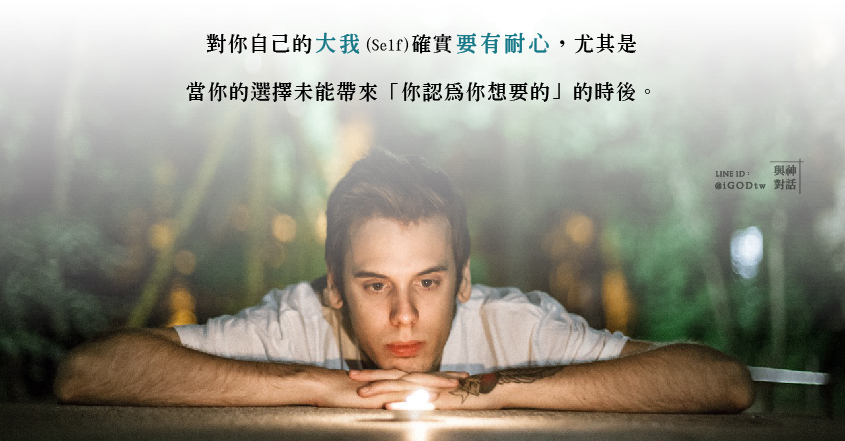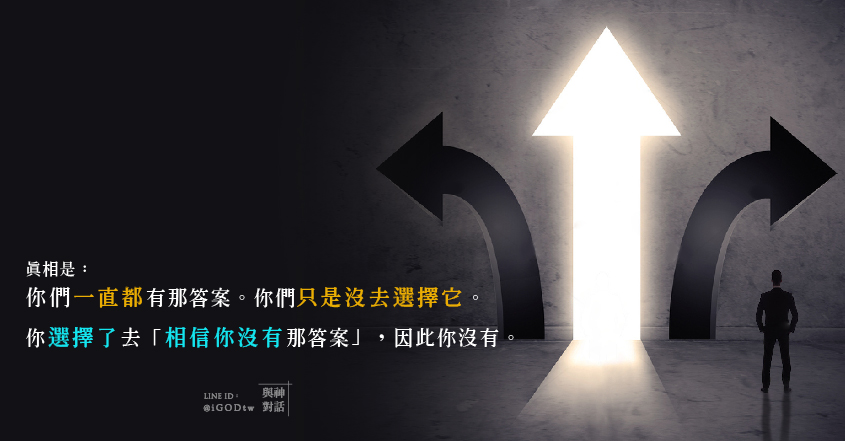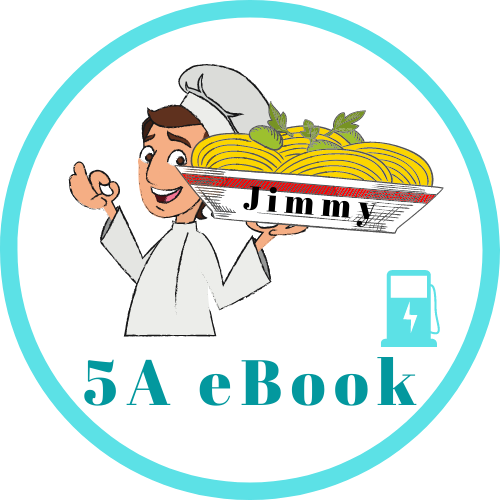
【為何「知道」先於「體驗」?】
我是我所是,而我也是我所不是(I Am what I Am, and I Am What I Am Not.)。這就是神聖二分法(Divine Dichotomy)。這就是那神聖之謎,直至現今,也只有最令人崇敬的心才會了解。而我現在在此,以一種更多人可以了解的方式已向你們揭示…
耐心一點,我的孩子。「一切好的事情會讓那有耐心的人等到」(“All good things come to those who wait.”)。你沒聽過這句話嗎?
尼爾:有啊 。我父親常說這句話,但我討厭聽。
我能了解。但你對你自己(Self 大我)確實要有耐心,尤其是當你的選擇未能帶給你「你認為你想要的」時。例如,你剛才問題的第二部分的答案就是如此。
你說你想要答案,但你並沒有在選擇它(You say that you want the answer, but you are not choosing it.)。你知道你自己沒有選擇它,因為你並沒有「經驗到你有答案」。真相是,你是有那答案的,而且你一直都有。你只是沒去選擇它。你選擇了去「相信你沒有那答案」——因此你就沒有。

尼爾:沒錯。你在第一部對話中也曾解說過這點。我此時此刻就擁有我選擇擁有的一切——包括一份對神的全然了解——然而除非我知道我擁有,我就不會體驗到我擁有(yet I will not experience that I have it until I know that I do)。
正是如此!你解釋得很完美。
尼爾:但是,除非我體驗到我擁有,否則我又如何能知道我已擁有呢?我怎麼可能知道我尚未體驗到的東西呢?不是有一位偉大的智者(a great mind)曾說:「一切的知都是(源自)體驗」(“all knowing is experience”)嗎?
他搞錯了。(He was wrong.)
知不是隨體驗而來——知先於體驗。(Knowing does not follow experience—it precede it.)
在這一點上,全世界一半的人都前後顛倒了。
尼爾:所以你的意思是說,我是擁有我問題第二部分的答案,只是我不知道我擁有?
正是如此。
尼爾:然而如果我不知道我擁有,那我就沒有。
這是個看似非而可能正確的議論(That’s the paradox. 悖論、奇詭),沒錯。
尼爾:我不懂……除非我懂。
確實如此。
尼爾:那麼,對某種東西,如果我並不「知道我知道」,則我又如何到達我「知道我知道」的境地呢?

要知道「你是知道的」,就以「你已經是那樣」地去行動。(To “know that you know”, act as if you do.”)
摘自《與神對話 III》第1章

There is nothing that I am not. Therefore, I Am what I Am, and I Am What I Am Not. THIS IS THE DIVINE DICHOTOMY. This is the Divine Mystery which, until now, only the most sublime minds could understand. I have revealed it for you here in a way that more can understand….
Patience, My son, patience. “All good things come to those who wait.” Have you never heard of that?
Neale: Yeah, my father used to say it and I hated it.
I can understand that. But do have patience with your Self, especially if your choices are not bringing you what you think you want. The answer to the second part of your question, for example.
You say that you want the answer, but you are not choosing it. You know you are not choosing it, because you do not experience having it. In truth, you have the answer, and have had it all along. You simply are not choosing it. You are choosing to believe you do not know the answer—and so you do not.
Neale: Yes, You went over this, too, in Book 1. I have everything I choose to have right now— including a complete understanding of God—yet I will not experience that I have it until I know that I do.
Precisely! You’ve put it perfectly.
Neale: But how can I know that I do until I experience that I do? How can I know something I haven’t experienced? Wasn’t there a great mind who said, “All knowing is experience”?
He was wrong.
Knowing does not follow experience—it precedes it.
In this, half the world has it backwards.
Neale: So You mean that I have the answer to the second part of my question, I just don’t know that I do?
Exactly.
Neale: Yet if I don’t know that I do, then I don’t.
That’s the paradox, yes.
Neale: I don’t get it… except I do.
Indeed.
Neale: So how can I get to this place of “knowing that I know” something if I don’t “know that I know”?
To “know that you know, act as if you do.

